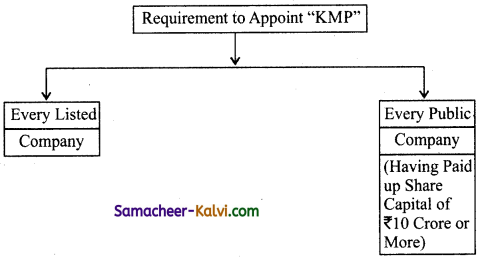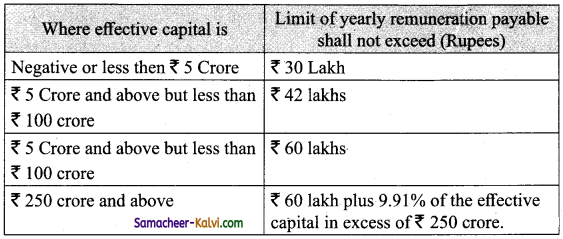Samacheer Kalvi 12th Commerce Notes Chapter 7 Stock Exchange
→ Stock exchange is one of the important constituents of capital market. It is an organized market for purchase and sale of industrial and financial security. It is a convenient place where trading in securities is in a systematic manner.
→ Stock exchanges are indispensable for the smooth and orderly functioning corporate sector in a free market economy.
→ According to Husband and Dockerary “Stock exchanges are privately. organized markets which are used facilitate trading in securities ”.
→ The various function of stock exchange are ready and continuous market correct evaluation of securities protection to investors, aid to capital formation, and facilities for speculations.
→ Stock exchange is a market where securities of corporate bodies, Government and semi-Govemment bodies are bought and sold.
→ Buying and selling transactions in securities at the stock exchange are governed by the rules and regulations of stock exchange as well as SEBI guidelines.
→ Stock exchange is a particular market place where authorized brokers together daily on the floor of market called trading circles and conducting trading activities.
→ The benefits of stock exchange are classified with benefits to the community, company and investors.
→ The limitations of stock exchange are as follows. Lack of uniformity and control to stock exchanges, failure to control unhealthy speculation, allowing more than one charge in the place and no proper regulation of listing of securities on the stock exchange.
→ There are 24 stock exchanges in the country with 21 of them being regional in nature. Three others have been set up in the reforms era (NSE)(OTCEI) and (ISE) have mandate to national wide trading network.
→ Speculators in a stock market are of different types. They are named after animals as their behavior could be compared best with the behavior of animals [Bull, Bear, Stag, Lame Duck].
→ The structure of stock market in India has undergone a vast change due to the liberalization process limited by the Government. A brief description of these structures in the Indian stock market system is presented below.
National Stock Market System (NSMS)
- National Stock Exchange of India Limited (NSE)
- Stock Holding Corporation of India Limited (SHCIL)
- National Clearing and Depository System (NCDS)
- Securities Trading Corporations of India (STCI)
- National Securities Depositary Limited (NSDL)
Ramesh and Asaladeepesh are good friends. Ramesh is very god-fearing kind, while Asaladeepesh was an enterprising person, having practical in approach. Read the following conversation.
Ramesh: Hi, Deepesh! What are you doing?
Asaladeepesh: Hi, I am reading the newspaper – a financial market page that gives us information about the shares price.
Ramesh: Shares, that is an area of big gambles.
Asaladeepesh: No, not really! You must understand how it works.
Ramesh: Frankly speaking, I think this Capital market is all a gambling game and I don’t see any use of them.
Asaladeepesh: No, you are seriously mistaken; you do not know the importance of capital market. I will tell how it is needed for an individual and an economy.
You are required to play the role of Asaladeepesh and continue the conversation.
Ramesh: Tell me about the significance of capital.
Asaladeepesh: Business firms need large funds to undertake a project.
Ramesh: What do you mean by capital?
Asaladeepesh: The most productive use leading to growth and development of the economy.
Ramesh: I couldn’t understand the concept capital.
Asaladeepesh: Capital in the form of shares bonds and stocks.
Ramesh: How to purchase these forms of capital?
Asaladeepesh: In capital market where buyers and sellers engage in trade of financial securities like bonds, shares, and stocks.

